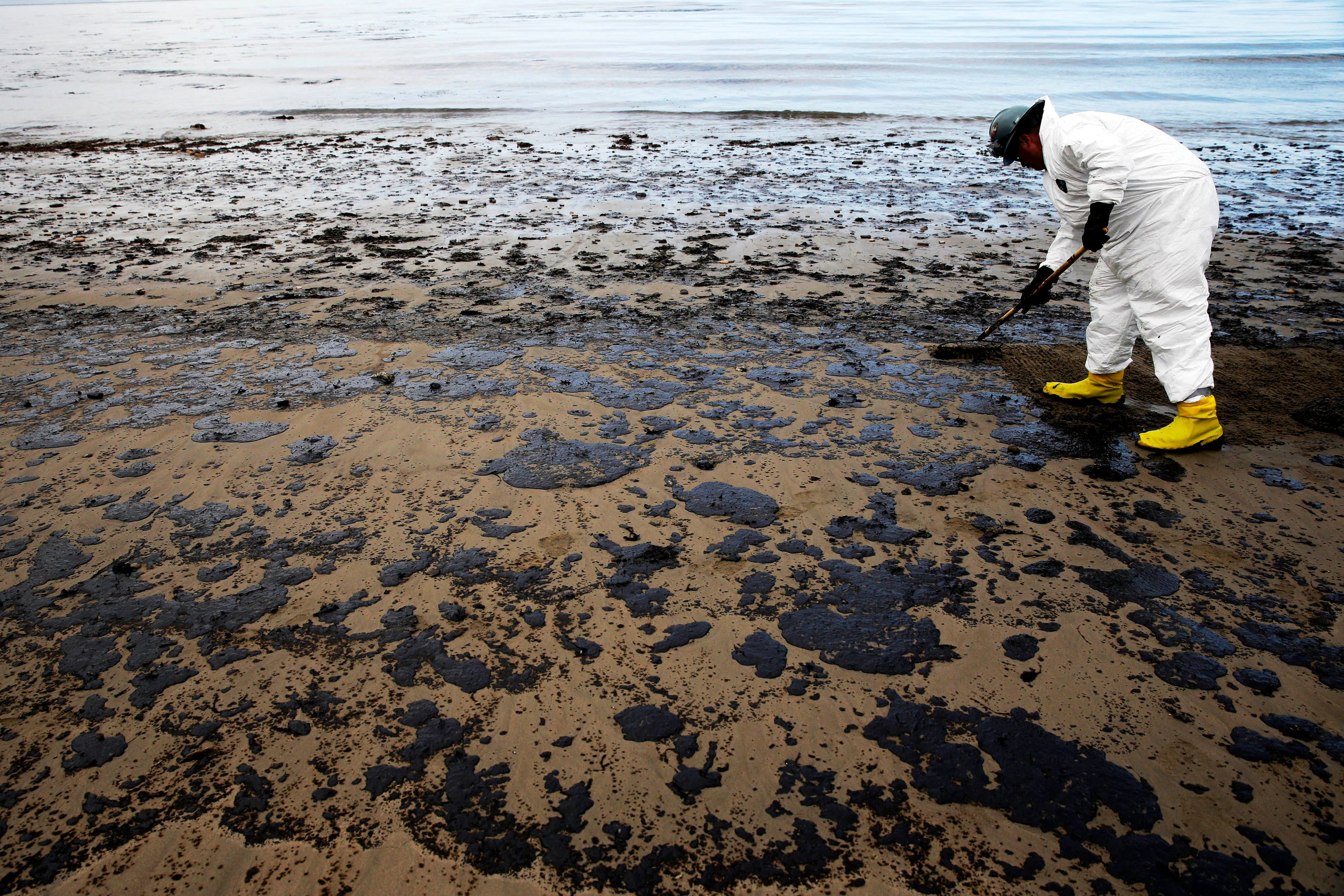California county rejects ExxonMobil plan to truck oil
Santa Barbara County supervisors have rejected a bid by ExxonMobil to restart offshore oil wells shut down in 2015 after a pipeline leak caused the worst coastal spill in 25 years

A bid by ExxonMobil to restart offshore oil wells shut down in 2015 after a pipeline leak caused the worst coastal spill in 25 years was rejected Tuesday amid lingering environmental concerns.
ExxonMobil's request to set up interim trucking routes to transport oil — a crucial step toward allowing three dormant 1980s-era drilling platforms to resume production — was rejected by the Santa Barbara County Board of Supervisors on a 3-2 vote.
“We disagree with the decision, which disregards our employees, contractors and countless others working in California’s oil and gas industry who depend on these jobs to support their families," ExxonMobil said in a statement. “ExxonMobil has met all of the requirements for issuance of the permit, which has gone through extensive environmental review and public comment."
A pipeline carrying oil to shore was shut down on May 19, 2015, when a corroded section above ground and running west of Santa Barbara ruptured, sending 140,000 gallons (529,958 liters) of oil onto a state beach and into the ocean.
ExxonMobil proposed sending up to 24,820 tanker trucks a year on coastal Highway 101 and State Route 166 for up to seven years or until the pipeline is repaired or replaced. ExxonMobil argued that trucking was the only way to bring offshore crude to market until then and the project would bring jobs and money to the area.
But two recent oil spills brought renewed scrutiny to the issue. In May 2020, a tanker truck crash off State Route 166 spilled more than 4,500 gallons (17,034 liters) of oil into the Cuyama River. And last October, an offshore pipeline break near Huntington Beach released at least 25,000 gallons (94,635 liters) of crude that closed beaches and took a deadly toll on sea life along one of the world’s fabled surf breaks.
Environmentalists applauded the decision to put the brakes on the trucking proposal.
“Exxon’s trucking proposal was a step in the wrong direction on climate and put Californians and our coastal resources in harm’s way from spills, crashes, pollution and fires,” said a statement from the Environmental Affairs Board at University of California, Santa Barbara.
Californians have taken a harder look in recent years at the state's oil and gas industry, which directly and indirectly supports over 365,000 jobs and has an annual output of over $150 billion, one study of 2017 data estimated.
Climate change is expanding the threat of wildfires, drought and tidal surges, and the state has positioned itself as a global leader in renewable energy and pioneering policies intended to slow the planet’s warming. The state plans to ban the sale of new gas-powered cars and trucks by 2035 and end oil production a decade later.
On Tuesday, opponents cited environmental concerns and oil industry workers said approval would help keep good-paying jobs in the county.
Supervisor Steve Lavagnino said California is still years away from being able to eliminate oil and gas in favor of alternative energy sources.
“The reality is: as much as we want that to happen, as much as I have voted for it to happen, it’s not there yet and we have to continue to produce fossil fuels as we transition,” he said.
Bookmark popover
Removed from bookmarks